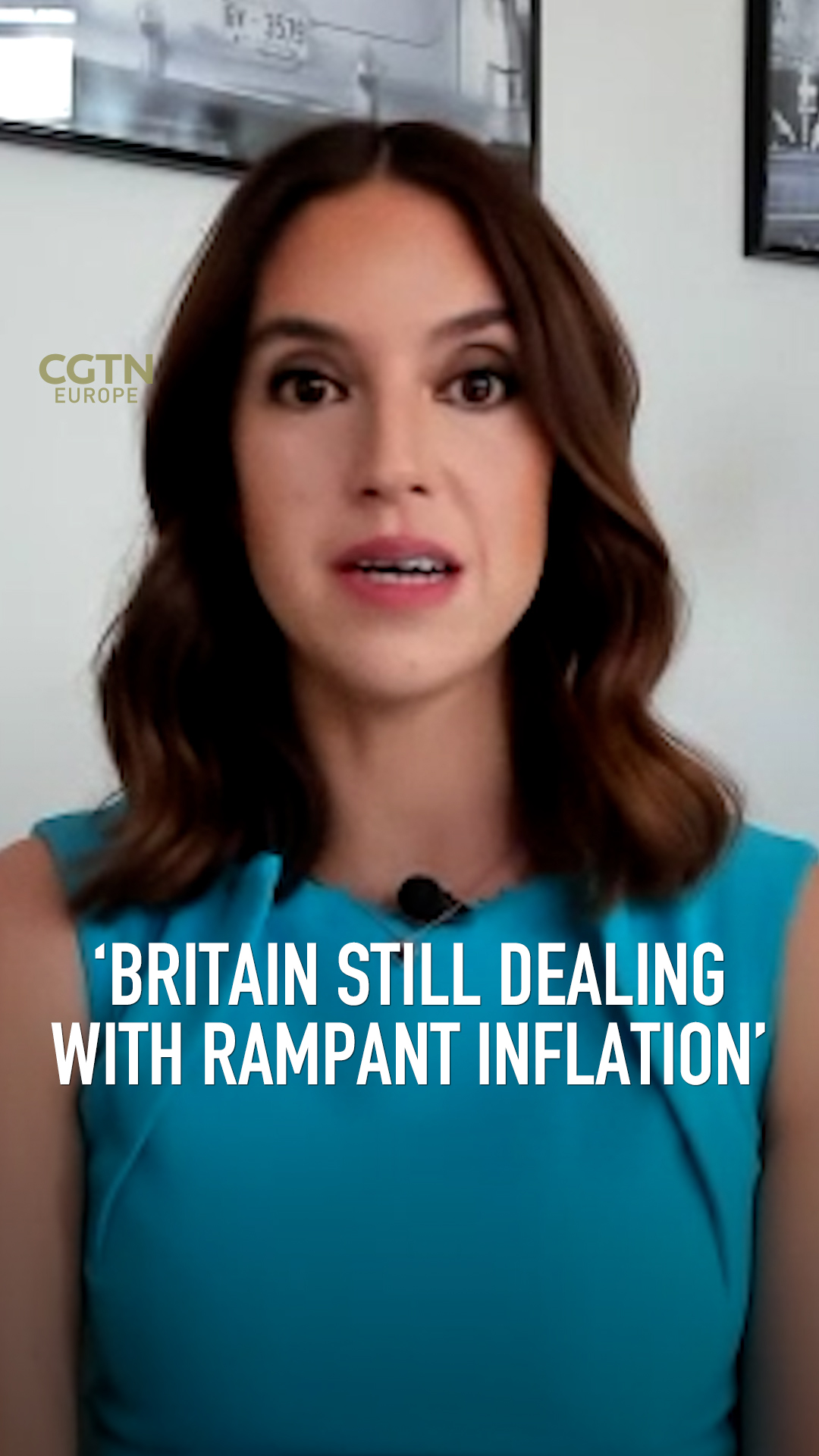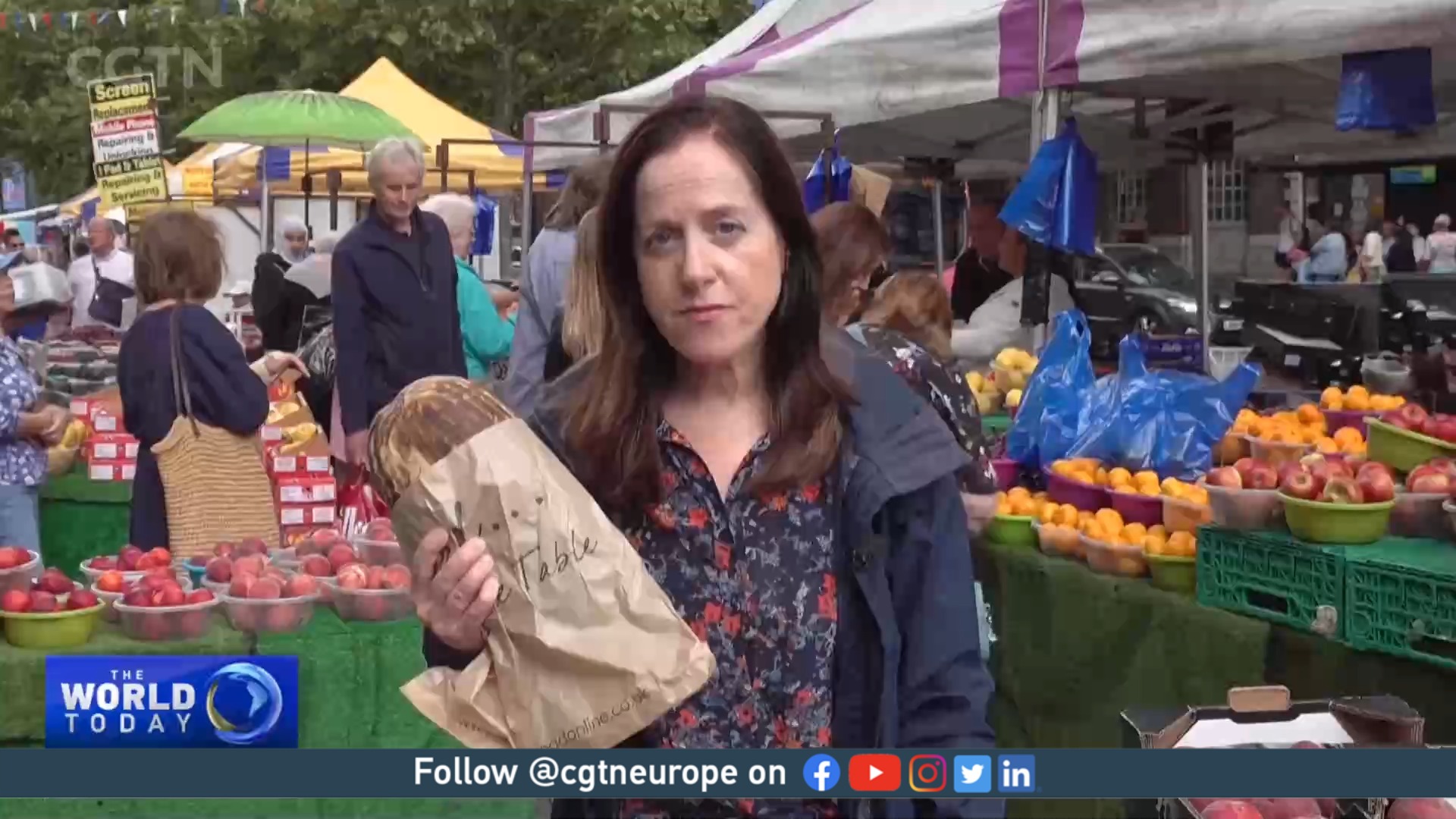00:52

The UK inflation rate may have fallen by more than expected in June, with the rate of 7.9 percent being its lowest in more than a year, but it is still one of the highest inflation rates of any advanced economy – driving up the cost of essential goods and services. So cash-strapped consumers are seeking to save where they can.
At the traditional street market in St Albans, a commuter city north of London, traders shout out special deals on their wares, tempting customers to buy large boxes of seasonal strawberries, blueberries and cherries.
The annual UK food inflation rate has dropped slightly after hitting a record high in the year to April 2023, but many essential food items still stretch the average budget.

Shoppers on London's Oxford Street, as Britain struggles with the highest inflation rate among the world's richest economies. /Rachel Adams/Reuters
Shoppers on London's Oxford Street, as Britain struggles with the highest inflation rate among the world's richest economies. /Rachel Adams/Reuters
READ MORE
Twitter threatens Meta with legal action
Sweden charges climate activist Greta Thunberg
AI to predict extreme weather events
"Britain is still dealing with rampant food price inflation, particularly because of its reliance on imports from abroad, and freak weather conditions that have limited crop supplies," says Victoria Scholar, Head of Investment at Interactive Investor.
"High inflation tends to make life more difficult for businesses and consumers and exacerbates the cost-of-living crisis. We've seen that inflation is currently outstripping wages, so we're seeing a reduction in the affordability of goods and services as their budgets get squeezed."
Rising business costs inevitably create higher prices for the consumer. But Matt Major, an independent street food trader at the market, says he tries to avoid his customers taking the hit via increases in the cost of key ingredients such as sugar and dairy products.
"I was very reticent about increasing my prices. You build regulars when you trade in different markets," he says. "I've seen a lot of businesses in the past throw their prices up too high and I think they lose trade."
Some food items, such as bread, are slowly dropping in price. But milk, cheese and eggs cost almost a third more than a year ago, tea and coffee 18 per cent more, while fish prices are still rising.
02:31

Manish Panchal has been running the Eat Wholefoods company for 45 years and has seen the cost of nuts, seeds and grain costs rise to record levels, while business has slowed amid consumer caution.
He told CGTN: "We tried to keep the prices as low as possible in the last year or so. Some of the products have gone up considerably, like sunflower seeds which come from Ukraine. That has gone up by almost 10 or 15 percent. In the past people used to just buy, never look at the price to see how much it is they're trying to compare. So, it's affecting the business."
The strain on household budgets also means less cash for luxuries in life, such as travel, clothing and concerts. The cost of borrowing is up too, causing panic among those with mortgages.
UK Prime Minister Rishi Sunak has recently reaffirmed his pledge to halve inflation by the end of the year. But the UK economy failed to grow for the last three months, which means the government may well fall short of short of that aim.

Subscribe to Storyboard: A weekly newsletter bringing you the best of CGTN every Friday